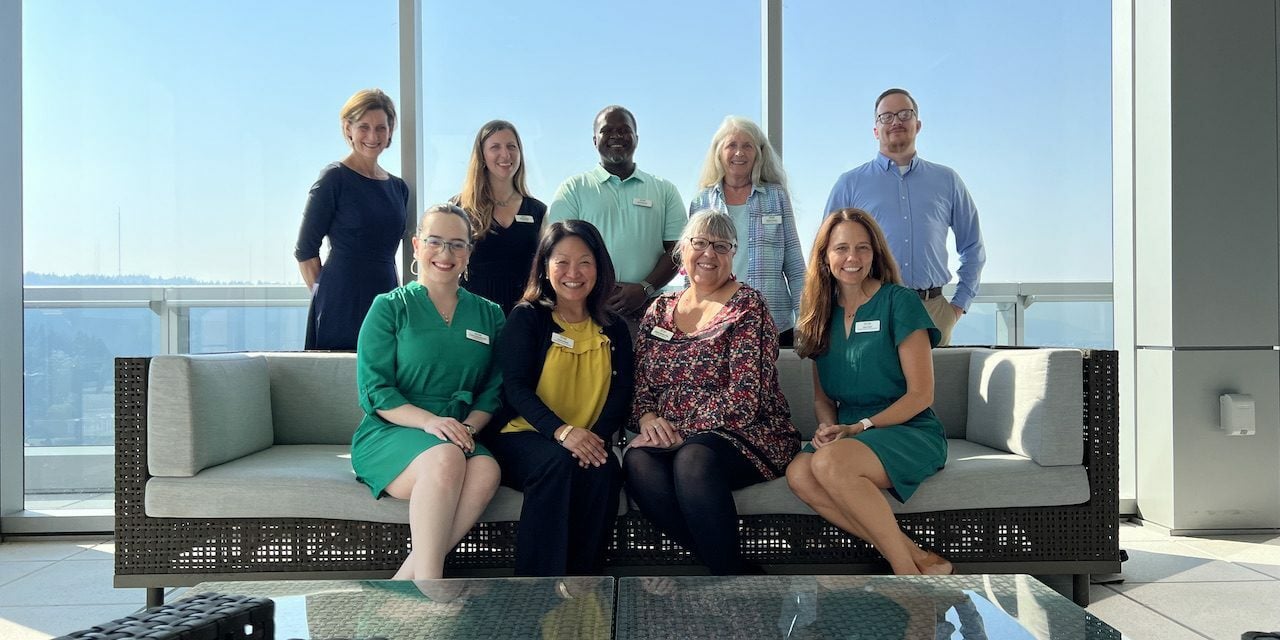Systems change can be a daunting challenge, requiring cross-sector coordination across organizations. But even the most complex systems are made up of people. When we support people to take up their roles and use their individual power, we can create lasting change.
StriveTogether’s coaching program, Coaching for Collaborative Action, supports leaders in stewarding their work and their teams to transform systems. When we transform systems, we create communities where every Black, Indigenous, Latine and Asian youth and family and those experiencing poverty have the opportunity to reach their fullest potential.
In this series, read the stories of four Cradle to Career Network leaders who are developing their strengths through coaching to support their communities to get better, more equitable outcomes. 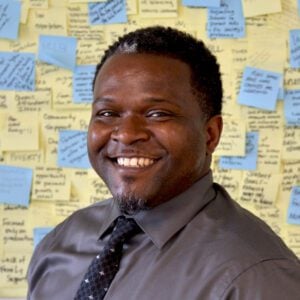
Lavert Robertson, chief executive officer at All Hands Raised, knows firsthand the importance of embracing multiple viewpoints and balancing communitywide priorities. As a leader, he works to both build internal organizational effectiveness and advance collaborative efforts to mobilize the broader community — all aimed at getting better, more equitable outcomes for the city of Portland, Oregon.
All Hands Raised centers racial equity and student voice in their work. In 2022, to support changes at the school district level, All Hands Raised convened the Partnership Council, a collaborative of cross-sector education and district partners. Partners from the Gresham-Barlow School District presented findings from an intensive year-long, student-designed equity and inclusion audit centered around student belonging. Since this gathering, district superintendents across the county have engaged in follow-up conversations to incorporate these insights into their districts’ work.
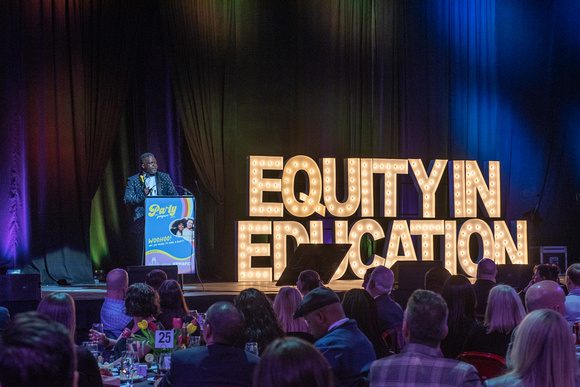
While Lavert and his team celebrate the early wins and emerging work from this collaborative, Lavert shares those collaborative action efforts were not without their challenges, including attending to internal dynamics.
“We’ve been through several transitions, and we didn’t take enough time to really digest these transitions and what was happening around us,” Lavert shared. These reflections brought up “deep questions about ourselves and how we relate to each other as a team in service to our work,” he said.
Some questions are difficult to answer through introspection alone, and that’s where coaching can come in. StriveTogether coaching supported Lavert to gain new awareness and grow in his ability to advance external collaborative work with partners and strengthen the relationships and alignment of his leadership team. With his coach, Lavert focused on organizational and team development to effectively sustain and elevate connections and attention to systems in Portland that improve the lives of students of color of Portland.
Lavert shares that his coach built an environment of trust and honest conversations where he could unpack personal leadership tensions and explore the impact of dynamics with his team. These steps led to building internal cohesion to clarify and advance collaborative efforts with local partners.
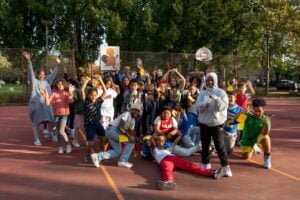
“[My coach] continued to draw things out of me and … really allowed me to trust. [With my coach I was able to] get honest about the things that bother me the most and what keeps me up at night,” Lavert explained.
Coaching helped him examine his approach and the needs of the community. “Often, [my coach] brought my own words back to me,” Lavert shared. “[The coach] asked questions: ‘What are you willing to risk in order to achieve your collaborative action goals? What are you willing to give up and change about perception, if there’s something that needs to change in order to reach your goal?’ It helped us prioritize what we truly felt was the most important problem we wanted to address.”
And it was that probing that Lavert shares helped him and his team clarify the aim of their work. “I think the biggest thing [our coach] did was help us sort of achieve clarity. We got a lot clearer on our purpose,” he shared. This strong sense of purpose had a big impact on All Hands Raised’s collaborative work in the community.
“We now are able to talk directly with our partners as far as what we stand for and the work that we’re doing. That has helped out a lot,” Lavert explained.
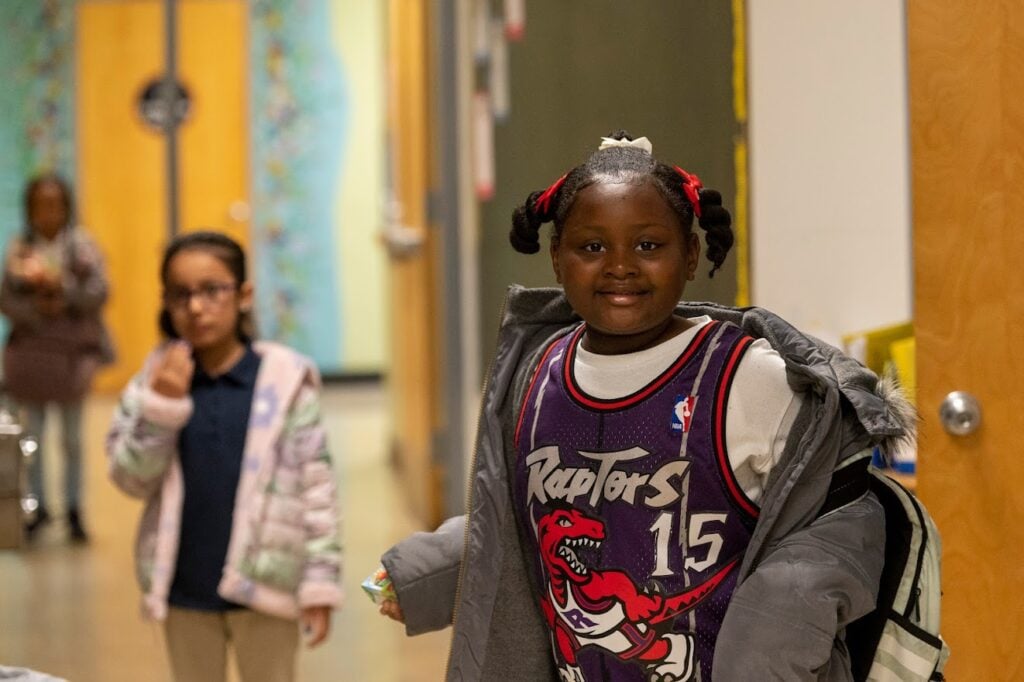
Because of this increased alignment and clarity, All Hands Raised has strengthened communication of their efforts with partners. “We got clear on our purpose that we’re here to support the whole child and really focus on BIPOC communities,” Lavert said. “So by us getting more clear with our purpose, we really got better aligned with our partners.”
Through coaching, Lavert shares, the team has strengthened its coordination and convener role in support of Gresham-Barlow’s three-year district inclusion plan and parent council collaborative efforts. And students remain at the center of the work.
“We’ve centered student voice and rendered their decision-making as part of the process,” Lavert shared. The All Hands Raised team is learning to trust the process for large-scale coordination efforts like these by establishing role clarity, flexing in ambiguity and balancing relationship-building with the technical side of the work. With coaching’s support, they are convening partners with grace for each other.
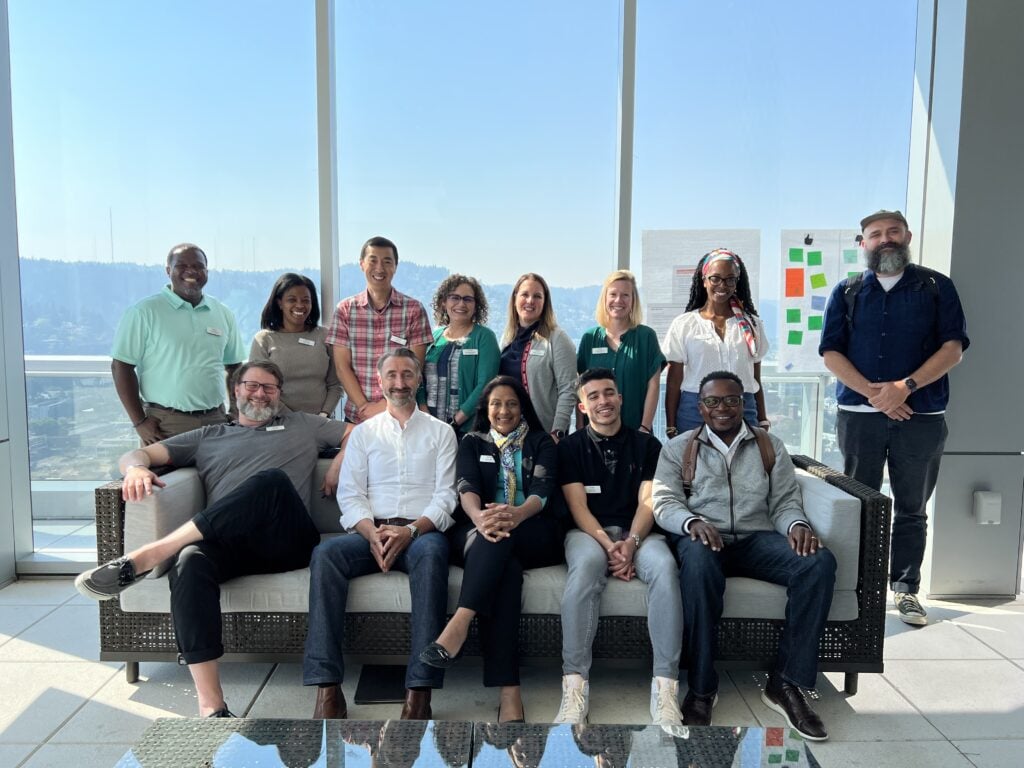
Leaders are tasked with driving collaborative efforts and attending to internal dynamics, and both require balancing the tension between empathy and results in a fast-paced environment with little time for processing information. Coaching can be an option for support. Lavert shares that coaching can be a sounding board and a leader’s space to slow down to attend to and balance one’s own “issues and problems and fully be attentive to someone else’s and the work.”
And for Lavert, having support as an individual leader means more support for his entire team. “I learned to have more patience for myself and my own self-care,” he shared. “I started to extend that to others, and it’s showing up in the work.”

